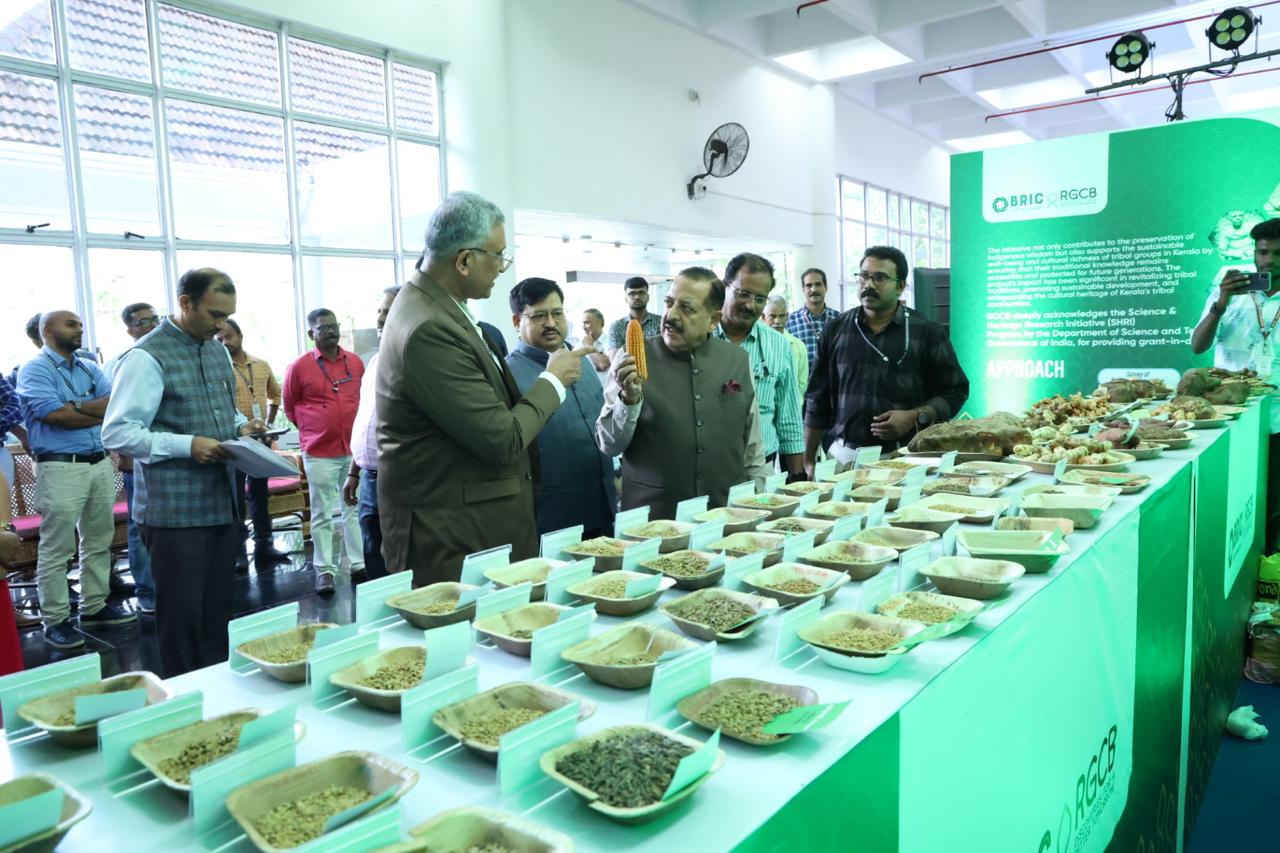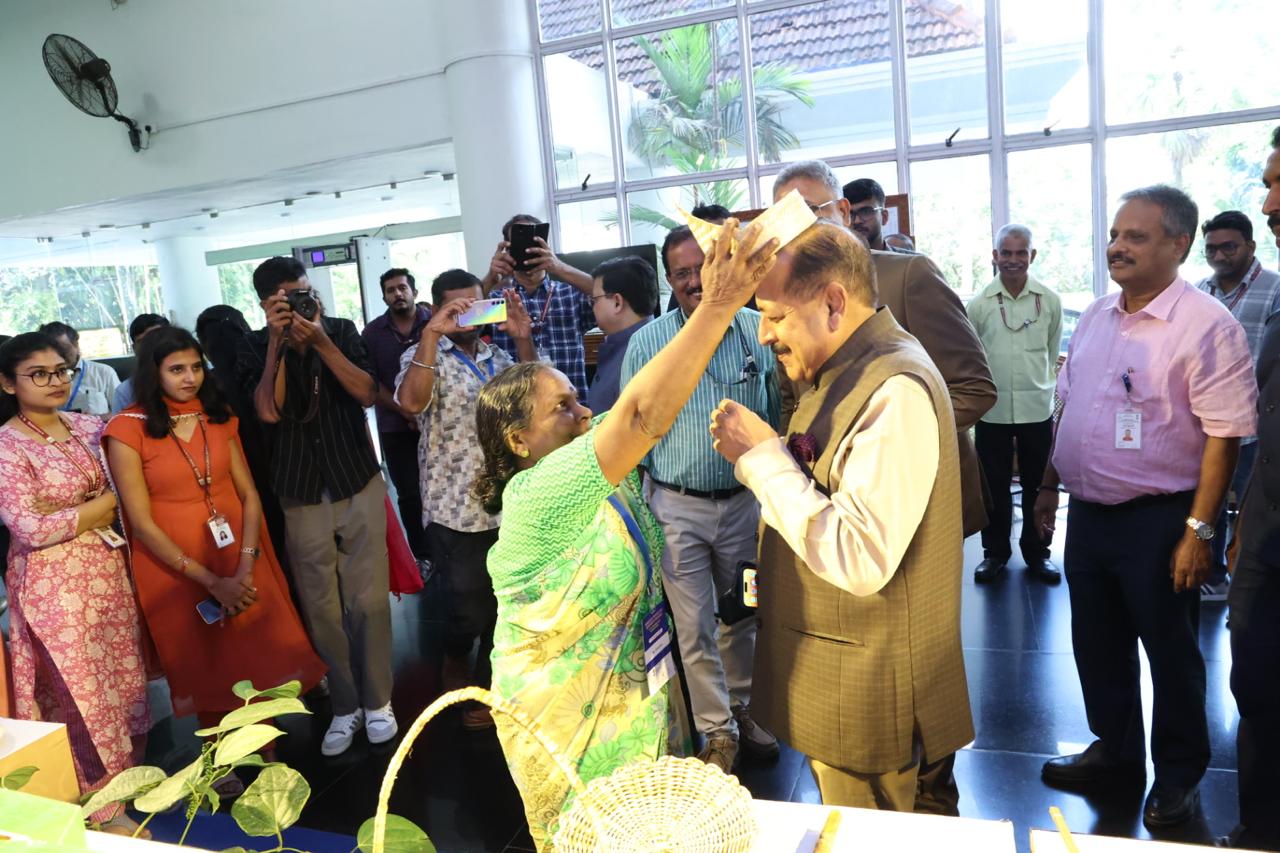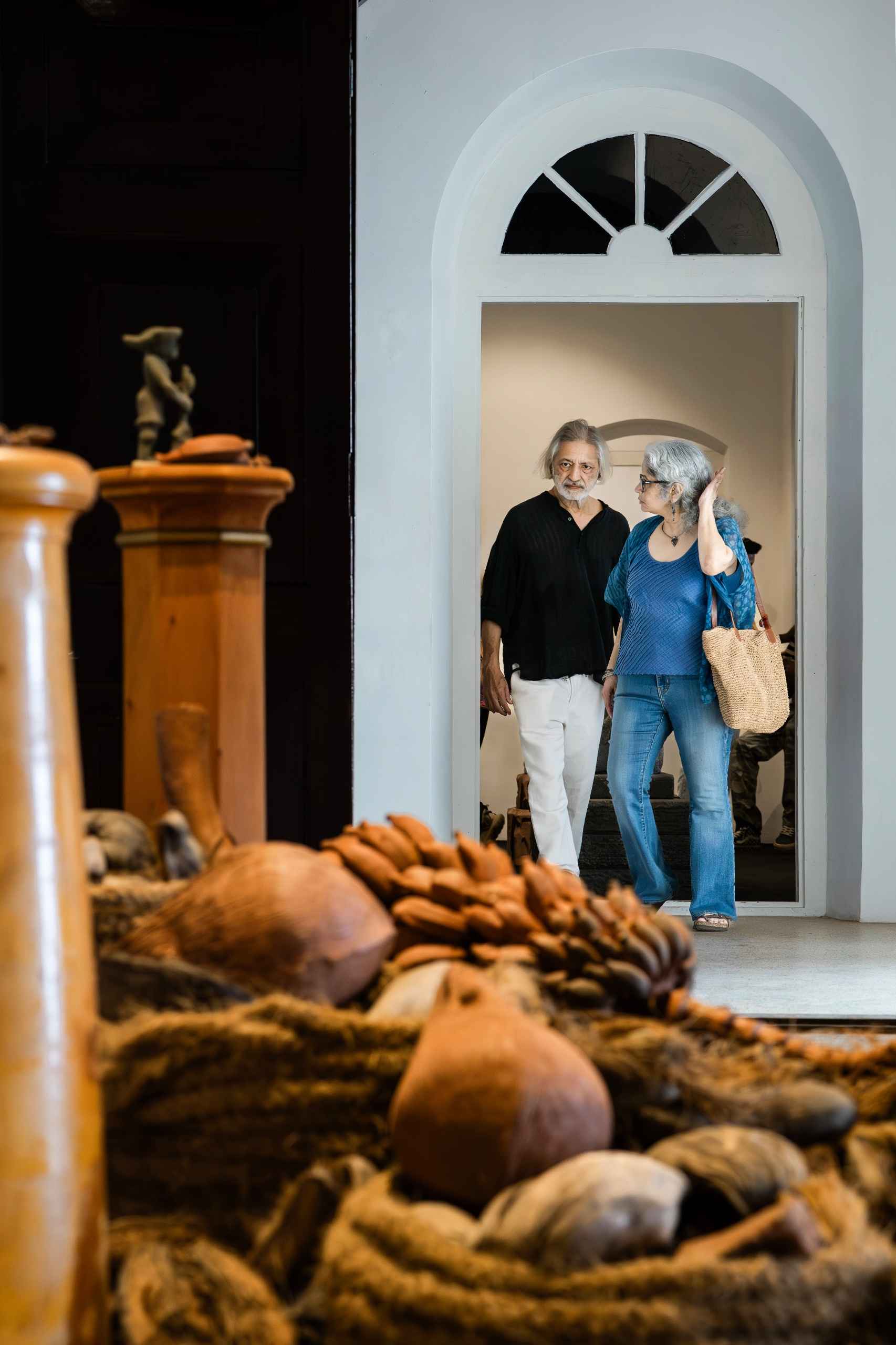Roll out fruits of scientific research for inclusive growth: Dr Jitendra Singh
Minister launches online SC-ST community enterprises backed by BRIC-RGCB, Swadeshi Science movement
Trivandrum / October 17, 2024
Thiruvananthapuram, Oct. 17: Union Minister of State for Science and Technology Dr Jitendra Singh today said it is time to scale up efforts to add value to the fruits of scientific research of leading institutions and roll them out for the inclusive progress of the society.
Dr Singh was speaking after inaugurating the community enterprises of Scheduled Castes-Scheduled Tribes communities of Kerala promoted jointly by the Tribal Science Heritage project of Biotechnology Research and Innovation Council- Rajiv Gandhi Centre for Biotechnology (BRIC-RGCB) and Swadeshi Science Movement-Kerala (SSM-K) at BRIC-RGCB campus here.
Around200beneficiaries of the BRIC-RGCB’s Tribal Heritage Project and Agro Based Science Technology & Innovation Hub of Swadeshi Science Movement-Kerala and Vijnana Bharati were present at the ‘SC/ST Farmers and Artisans Meet’under the Science and Technology Innovation Program of the Department of Science and Technology, Govt of India. BRIC-RGCB Director Dr Chandrabhas Narayana presided over the function.
After Shri Narendra Modi took over as the Prime Minister, a big thrust has been given to sectors like Biotechnology by unveiling the Bio- E 3 policy, which has its emphasis on Economy, Environment and Employment as the country is preparing for the next Industrial Revolution, Dr Singh said.
“As India has come to play a big global role, it is now time to creatively think how to add value to the outcome of these policies and roll them out and provide a handholding to the otherwise left-out sections as well,” Dr Singh said.
Referring to the presence of leading science and technology institutions in the city, Dr Singh said Kerala capital has become the Science Capital of the country, just as it is known as the tourism capital.
“Thiruvananthapuram can also be called the science capital of India as it has become a favourite destination for scientists. It has immense scientific and research potential, because of the resources and also because of the legacy of science research and innovation which has been there for generations,” Dr Singh said.
He said it is vital to combine the country’s scientific potential with industrial start up ecosystem. “We were just 50 startups in 2014, now it is almost 9000. Our bio economy was just 10 billion USD, today its about 130 billion USD.
He said during the outbreak of Covid-19, Indian scientific institutions had demonstrated their strength before the world. A faculty from RGCB was part of the global presentation of the vaccine- a product of biotechnology department.
The concept of ST hubs aligned with Prime Minister Modi’s vision of rolling out exclusive initiatives and schemes for the inclusion of the marginalized sections in the progress of the country. This initiative of Kerala has placed a pilot project for the entire country as a sustainable and innovative model of self-employment and self-livelihood, Dr Singh said.
Putting together the efforts of institutions like CSIR, DBT and RGCB and building linkage with industry to this mix can help production and marketing of these ethnic products.
The momentum gained by floriculture, medicinal plant cultivation and purple revolution which seeks to increase farmers income and employment for promoting fragrance industry with the support from scientific institutions has generated lot of scope for agri-startups, which is exclusively an Indian domain, he said.
It is now time to align all these forward movement to sustain the growth and progress when the India is poised to play a major global role, the Minister added.
Dr Chandrabhas Naryana said BRIC-RGCB has been reaching to remote areas of districts like Wayanad, Idukki and Thiruvananthapuram to promote various products of tribal communities. The students, technicians and faculty who visited these placed received great resonance from the tribal communities, he said.
Director of Vikram Sarabhai Space Centre Dr S Unnikrishnan Nair, Director CSIR-NIIST Dr C Anandharamakrishnan, former Union Minister Shri V Muraleedharan, SSM President Dr K Muraleedharan and Shri Vivekananda Pai, Secretary General Vibha and Shri Praveen Ramdas, Secretary Vibha spoke. Dr Priya Srinivas, Dean, Academics BRICS-RGCB welcomed the gathering.
The units inaugurated virtually by Dr Singh were Ethnic food processing units by Viayana ST Gothra Vanitha Swasraya Sangam of Kammana, Wayanad, Agasthya Achar Unit, Vlavila Thiruvananthapuram and Avani Gothra Varga Swasraya Society, Vazhathoppu, Idukki, medicinal plant processing units by Gothra Vanavasi Sangam, Vlavetti, Thiruvananthapuram and Nanma ST Kudumbasree Medicinal Plant Processing Unit
Project, Kanjikkuzhi, Idukki, and a Fixed Oil Unit by Bhaskar Rao Purusha Swayam Sahaya Sangham, Kulathupuzha
The gathering including artisans and farmers drawn from Wayanad, Idukki, Thiruvananthapuram, Pathanamthitta, Palakkad and Malappuram districts.
An expo featuring 50 wild tuber varieties from forest and 60 paddy varieties from Wayanad was also held.
The Minister also released the books titled “The Taste of the Wild- An Inventory on Ethnic Food and Wild Edibles” and "Revitalizing tribal traditions: Initiatives for Sustainable Vikasit Bharat" at the function. Minister also presented mementos to farmers who excelled in production practices.
The Tribal Heritage Project focused on value addition and fortification, developing products from underutilized locally available resources like tubers, fruits, and medicinal plants.
The project has made a significant impact on tribal communities in Kerala by focusing on the preservation of traditional knowledge, empowerment of tribes, conservation of indigenous flora and practices, economic growth, and the promotion of indigenous practices and products.
Ends





